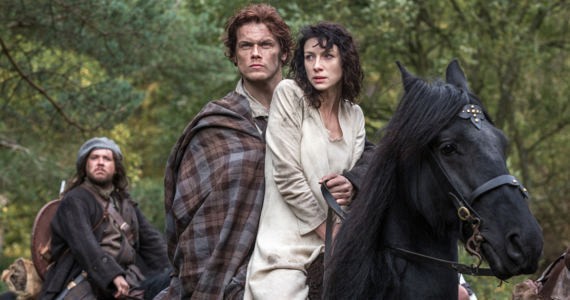In the second section of Remix, Lawrence Lessig identifies two different economies—commercial and sharing—in relation to the exchange of digital content. A commercial economy, according to Lessig, can be defined as any economy in which “money or ‘price’ is a central term of the ordinary, or normal, exchange” (Lessig 118). Most simply, any situation in which we make a purchase through paying money for goods (i.e. going to the grocery store to buy groceries) is an exchange that takes places within a commercial economy. We expect to pay some sum of money for the goods we purchase and the companies responsible for marketing these goods are satisfied that the goods are worth the amount of money they are sold for. While we may occasionally wish to pay less, we generally understand that the monetary price is reasonably forfeited to acquire something that we need. Through paying, we expect only to receive that which we’ve paid for (we do not, Lessig humorously suggests, expect the seller to consistently express a desire to be actively involved in our personal lives). Money is both definitive of the commercial economy and seen as necessary. This is precisely where the commercial economy differs fundamentally from the sharing economy: money can have no productive place in the sharing economy. In fact, Lessig goes as far as to suggest that it can be “poisonous” (Lessig 119).
In a sharing economy, “access to culture” is regulated “not by price, but by a complex set of social relations” (Lessig 145). As with the commercial economy, the sharing economy is built upon exchange—but money does not play a role in that exchange. Lessig relates the sharing economy to the realm of gift exchange, suggesting ultimately that gifts are not related to money because they do something else—something that is particularly communal. He writes:
Gifts in particular, and the sharing economy in general, are thus devices for building connections with people. They establish relationships, and draw upon those relationships. They are the glue of community, essential to certain types of relationships, even if poison to others. It is not a gift relationship that defines your employment contract with a steel mill. Nor should it be. But it is a gift relationship, or sharing economy, that defines your life with your spouse or partner. And if it isn’t, it better become so if that relationship is to last. (Lessig 148)
Sharing economies work precisely because they are motivated by connection (and not by money). Participants in a sharing economy are thus willing to participate in exchange without the promise of monetary gain because doing so permits them to participate in and strengthen a community. Money would alter—and potentially weaken, or cheapen—relationships of this nature.
Lessig also distinguishes between “me-regarding” and “thee-regarding” sharing economies (Lessig 151). In the former economy, someone participates because it benefits him or her; in the latter economy, someone participates because it will benefit others (Lessig 151). Further, “thin” sharing economies are those with a me-regarding motivation and “thick” sharing economies are those “where the motivations are at least ambiguous between me and thee motivation” (Lessig 152). Generally, Lessig suggests that a thin sharing economy is easier to sustain over time than a thick sharing economy, because “inspiring or sustaining thee motivations is not costless” (Lessig 154). Economies in which individuals are motivated primarily by their own selves and interests are inherently easier to sustain than those that are motivated by the needs or desires of others. However, in Internet sharing economies, Lessig suggests that there are circumstances in which users feel that they “owe” the community something (Lessig 155). Participants can feel like they need to offer something in order to be considered a valued member who is participating appropriately and effectively in the sharing economy.
One sharing economy that stands out to me—and that we already spent a little time in class discussing—is that of fanfiction (and participation in fandoms, more generally). In order to write fanfiction, writers work with preexisting characters and construct new narratives for them. Fans of those characters will be eager to read these narratives for many reasons (i.e. the author finished writing the series, the readers are waiting for the author to publish a new book in the series, the series and characters are just generally well-loved, etc.). Ultimately, people write (and read) fanfiction for a variety of reasons but one thing remains constant—fanfiction authors are not paid for their efforts. In this way, the text that they share can be seen as a gift to the fandom and an attempt at building an established Internet community. Participants in this community—particularly writers—may feel that they need to contribute writing in order to consistently energize the community.
While fanfiction can be found for nearly any fandom, I want to focus a bit here on Outlander fanfiction given the series author’s avowed hatred of the medium. Diana Gabaldon,

whose Outlander series spans many books and thousands of pages, expressed disgust with fans that write fanfiction of her novels in a series of heated posts on her book blog. While these posts have since been removed by Gabaldon, they exist in various locations through fan-taken screencaps that were then transcribed into various other mediums, such as Livejournal. Gabaldon’s stance rests on her belief that fanfiction is unethical. Put bluntly, she writes: “I think it’s immoral, I _know_ it’s illegal, and it makes me want to barf whenever I’ve inadvertently encountered some of it involving my characters” (Gabaldon). While she recognizes that fanfiction authors are not achieving monetary gain through their efforts, Gabaldon’s ideas rest on copyright:
Well, see, this is where “illegal” comes in. You can’t break into somebody’s house, even if you don’t mean to steal anything. You can’t camp in someone’s backyard without permission, even if you aren’t raising a marijuana crop back there. And you can’t use someone’s copyrighted characters for your own purposes, no matter what those purposes are. Really. I’m not making it up; this is International Copyright Law. (Gabaldon)
Gabaldon sees copyright issues as pretty black and white. For her, there’s no value in fans reworking her characters for the purpose of fanfiction, and when she does encounter it she takes personal offense.

I see a lot of problems with Gabaldon’s stance, not least because her tone is consistently both dismissive of and blatantly aggressive toward her fans. At several moments in her blog posts she dismisses Outlander fanfiction as nothing more than poorly-written fantasy that can potentially cause her to lose all rights over her own characters. Of course, much fanfiction will necessarily not be well written, but here Gabaldon is missing the point: fanfiction writers, good and bad, are contributing to a sharing economy that has room for people of various literary skills. Fanfiction seems to be a way through which fans can communicate and form closer bonds in the interim of books being published—at which point they will purchase the author’s book, not forego it for the reading of fan fiction. Gabaldon’s posts served to alienate herself from her fans, which I’m sure was not her intention. The question then remains: is it really so bad to construct new narratives for well-loved characters?

Sources:
Lawrence Lessig, Remix: Making Art and Commerce Thrive in the Hybrid Economy.
Diana Gabaldon on Outlander fanfiction

Jordan, the summary of the economies here is really thorough and helpful!
I think the role of copyright privileges and fair use as they relate to fanfiction/fanart is a fascinating and extremely important topic. You can read up more on it here from the legal perspective
http://lawblog.usfca.edu/internetjustice/2013/fan-fiction-and-copyright-law/
here from a business perspective
http://www.business2community.com/entertainment/copyright-myths-from-the-world-of-fan-fiction-0588594#5xRls1FVGYWp4PPX.97
here from Times Higher Education
https://www.timeshighereducation.com/books/fan-fiction-and-copyright-outsider-works-and-intellectual-property-protection/418271.article
Seems like it is up to the authors and their publishers as to whether they enter into a hybrid gifting community with their fans. Personally, I’d never heard of this author; it seems like the real household names are a little more relaxed and reciprocal.
LikeLike